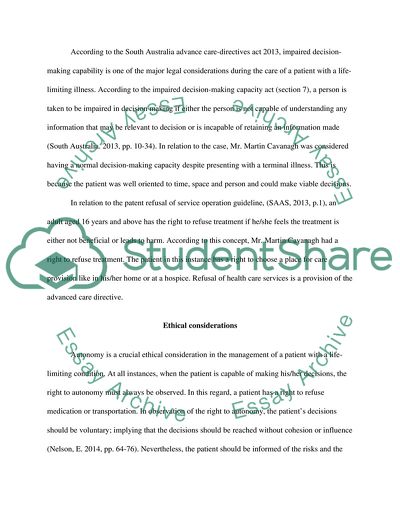Palliative Care Essay Example | Topics and Well Written Essays - 1000 words. Retrieved from https://studentshare.org/nursing/1697819-palliative-care
Palliative Care Essay Example | Topics and Well Written Essays - 1000 Words. https://studentshare.org/nursing/1697819-palliative-care.


